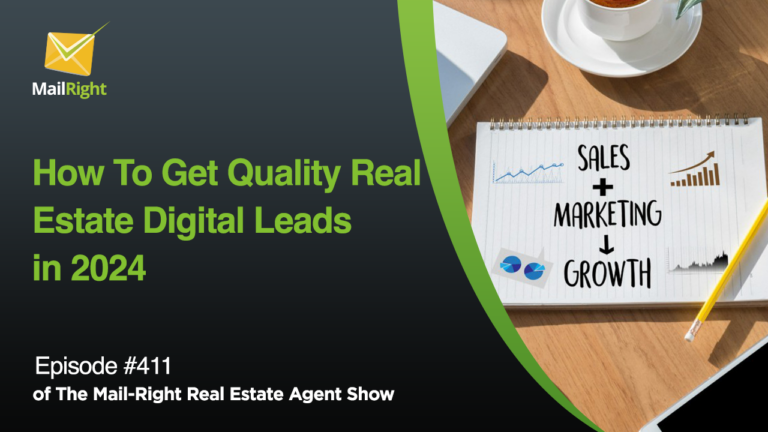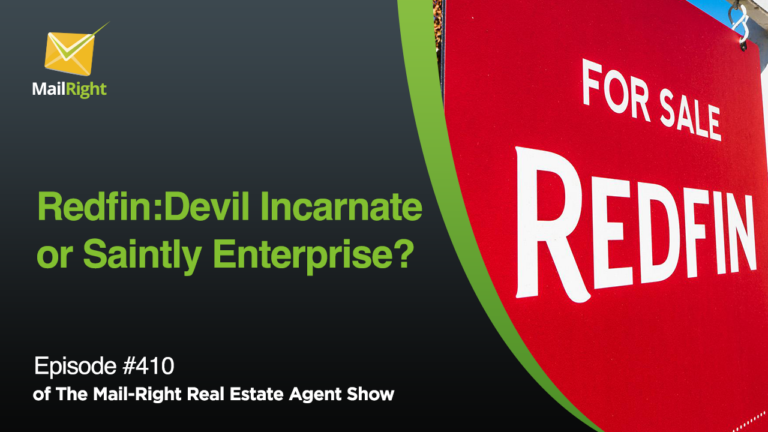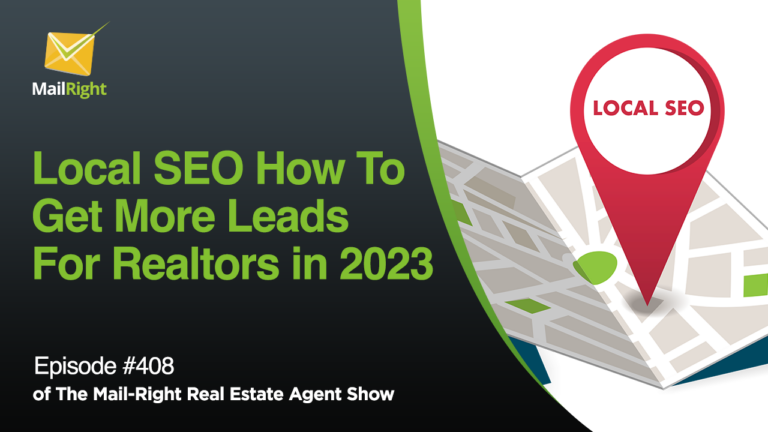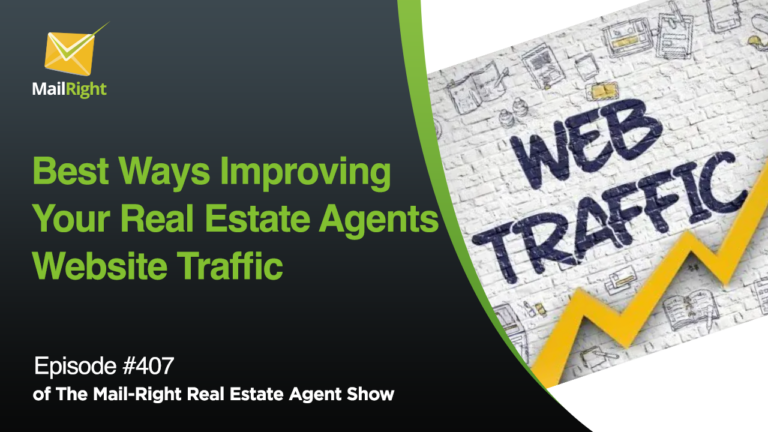Mail-Right Show Episode 290 – Discussion with Special Guest Chad Keller on Paid Advertising Options for Realtors
In the 290th episode of Mail Right Show, Robert and Jonathan featured Chad Keller, a PPC and paid strategy specialist who has recently focused on investment properties. Chad spent the last 12 years in paid marketing, working in single businesses with backup paid marketing. He started his agency, which expanded into real estate investing, and eventually became a brokerage for real estate investors. Some of these investors and realtors also engage in traditional real estate activities such as wholesaling and finance. He gained expertise dealing with them and is now a specialist who works with around 150 investors countrywide. Chad Keller offers his expertise, techniques, and tricks for increasing Seller leads through Facebook and Google.
How to Attract Investors by Using Assistance Strategies?
Partnerships with companies such as Facebook or Google offer a lot of benefits to businesses in terms of growth. It can attract investors and eager sellers through word of mouth if done correctly. A mix of Facebook and Google ads is the most successful method for bringing many major agencies with significant spend expertise to a small market. Finally, trusting a professional to execute some of these strategies for top-of-the-funnel campaigns and develop a system of this nature will provide a far greater probability of success than doing it independently.
What Works and Doesn’t Work on Facebook
What works on Facebook is a direct-to-user advertisement. Advertisements that are innovative and creative, but not overly so, in order to capture the public’s attention. An ad that enhances the appearance of Facebook while also having a significant effect and complementing the landing page, resulting in an exceptional user experience.
Creating Landing Pages
A landing page is a standalone web page created specifically for a marketing or advertising campaign. It’s where a visitor “lands” after clicking on a link in an email, or ad from Google, Bing, YouTube, Facebook, Instagram, Twitter, or similar places on the web. The AI in Facebook will scan the landing page and see if they align with the ad. Facebook does this to avoid illegal transactions such as marijuana, etc. So the ads must coincide with the landing page; otherwise, you’re not going to get the total monetary value out of your ad investment.
So, once again, it comes down to the sort of buyer and Seller you’re looking for. You want the landing page to communicate with them and show them what they need. In making a landing page, carrot.com has been a great help. They provide ready-to-use landing pages that are properly optimized to work for Facebook Ads. You just need to put in your company name, brand logo, and target location and they’ll do the rest.
Difference Between Google and Facebook
Google uses a cost-per-click model where you’re in a bidding war, but Facebook uses an impression-based one where you can be more flexible. You can do it to some extent on Google, but there’s a big difference between selling your house and selling your home quickly, especially if you’re targeting motivated sellers. That one small word at the end may make all the difference in a market. So, on Google, it all boils down to how much money you have. It’s an auction-based system with a large base. Granted, you can optimize your ad targets by using long-tail keywords and other tactics. If you look at it from a cost-per-lead standpoint, it will always be a higher cost-per-lead, as we’ve seen in various areas. So the main difference is one like it’s going to be more expensive on Google.





